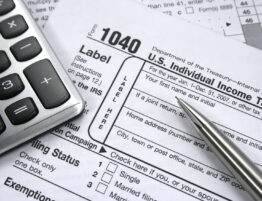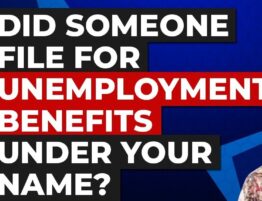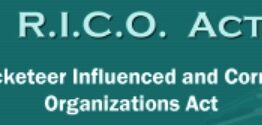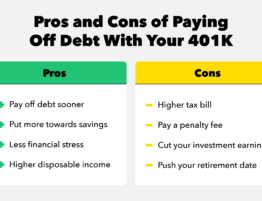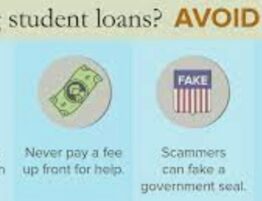Does Filing Bankruptcy Stop a Rental Eviction?
Does Filing Bankruptcy Stop a Rental Eviction?
Yes, it can, under many circumstances.
When you file a bankruptcy case you get immediate protection from most collection actions by creditors. This protection is called the “automatic stay.” A landlord to whom you owe rent is covered by this automatic stay. That’s because the law stops “any act to obtain possession of [your] property” or “to exercise control over [your] property.” See Section 362(a)(3) of the United States Bankruptcy Code.
The word “property” here doesn’t just include the physical objects that you own. The automatic stay doesn’t just stop vehicle and furniture repossessions. The meaning of property in bankruptcy law is much broader. The term includes “all legal and equitable interests . . . in property as of the commencement of the [bankruptcy] case.” Section 541(a)(1) of the Bankruptcy Code.
Your protected “legal and equitable interests” include “leasehold” interests. That includes your contractual right to possess and occupy your residential rental property. So, filing bankruptcy immediately imposes automatic stay protection that will stop your landlord from taking away your right to live in your rented home.
ARE THERE CIRCUMSTANCES THAT PROTECTION DOES NOT APPLY?
Yes, the automatic stay does not kick in if you no longer have any “legal or equitable interest” in the rental property when you file your bankruptcy case. Understandably bankruptcy protects what is yours at the time of filing, not property you no longer have any “legal or equitable interest” in.
The law makes this quite clear in an exception in the automatic stay statute. The exception says that the automatic stay does not apply if the landlord has gotten “a judgment for possession of such property” against you before you file bankruptcy. .” Section 362(b)(22) of the Bankruptcy Code. Once there’s a court determination that the rental property is the landlords, it’s no longer yours.
In other words, once the landlord has a court judgment giving it back the rental property, you’ve lost your leasehold interest in the property. You no longer have a “legal or equitable interest” to protect.
However, if your landlord has not yet filed a legal action to evict, you do still have a protected interest. Or even if your landlord has taken legal action to evict you from rental premises but has not yet gotten a judgment for possession of the premises, your protectable interest in the leased premises still exists. Your bankruptcy filing will stop that eviction process and will stop the landlord from removing you.
SO TIMING IS EVERYTHING?
Yes, filing your bankruptcy case fast enough can make all the difference. Eviction procedures can move very quickly.
ISN’T THERE AN EXCEPTION TO THIS EXCEPTION?
The Bankruptcy Code does have a provision for keeping the automatic stay in effect for at least 30 days after filing bankruptcy, even after an eviction judgment against you. This involves paying the clerk the full amount due to the landlord up through 30 days after your bankruptcy filing, and certifying that you’ve done so. Section 362(l) of the Bankruptcy Code.
The question is whether this provision applies here locally. By its language it does not apply unless “under bankruptcy law applicable to [your] jurisdiction” there’s a procedure allowing a tenant to do this. That is, state or local law enables a tenant to keep the residence by paying the total amount due to the landlord, regardless of the entry of an eviction judgment in favor of the landlord. Frankly, as best as I know California state law does not provide for such a procedure. To be thorough, there is a very slight possibility that some local jurisdictions may do so, but again I’m not aware of any. Talk with your bankruptcy lawyer about whether this may apply in your own situation. Otherwise, in general, you lose your ability to keep your rental residence through bankruptcy if your landlord gets a judgment of possession beforehand.
ARE THERE OTHER SITUATIONS TO BE CONCERNED ABOUT?
Yes, beyond this judgment-for-the-landlord exception to the automatic stay, there are two others. One for a tenant’s “endangerment of property,” and another for “illegal use of controlled substances on the property.” In both cases the landlord can get permission to evict very quickly after a tenant’s bankruptcy filing.
WHAT DOES A LANDLORD HAVE TO DO IN THESE TWO SITUATIONS?
At any time after the tenant’s bankruptcy filing, the landlord files a “certification under penalty of perjury” at the bankruptcy court. That certification must state that in the prior 30 days the tenant either “has endangered [the rental] property” or “illegally used or allowed to be used a controlled substance on the property.” Also, the certification could state that an eviction proceeding had already been filed based on either of these facts. Section 362(b)(23) of the Bankruptcy Code.
The landlord must serve a copy of this certification on the tenant. If the tenant does not respond by filing a formal objection within 15 days of that date, at that point the automatic stay immediately no longer applies to the landlord’s eviction proceeding. If one was filed earlier, it can continue. Otherwise the landlord can start one immediately.
WHAT IF THE TENANT DOES FILE AN OBJECTION TO THE LANDLORD’S CERTIFICATION?
The bankruptcy judge decides whether to let the tenant stay or not, and does so very quickly.
The tenant objection must dispute either:
1. the truth of the facts about endangerment or illegal controlled substance use in the landlord’s certification, or
2. the “legal sufficiency of the certification.”
The court must then set a hearing within 10 days of the tenant’s objection. At the hearing the bankruptcy judge “determine[s] if the situation giving rise to the [landlord’s] certification . . . existed or has been remedied.” Section 362(m)(2)(B).
If the tenant “can demonstrate to the satisfaction of the court that” the information in the landlord’s certification “did not exist or has been remedied,” the automatic stay remains in effect. The tenant can stay in the rental.
Otherwise, the automatic stay protection immediately dissolves and the landlord can proceed with its usual legal remedies to evict the tenant.
Call the law firm for immediate assistance if you are facing eviction. 888-275-2620
Related Stories
April 9, 2024
Title: The Alarming Rise of Identity Theft: A 2024 Perspective In recent years, the threat…
July 27, 2022
IRS Fresh Start Initiative Program, resolving IRS tax debts. Do You Need a Fresh Start…
June 9, 2022
IRS First Time Penalty Abatement – FTA The first-time penalty abatement (FTA) waiver is an…
March 26, 2022
If you filed a chapter 7 bankruptcy, look into filling IRS form 982 When you…
Posted in: Debt & Bankruptcy
March 26, 2022
DID SOMEONE FILE FOR UNEMPLOYMENT BENEFITS UNDER YOUR NAME? If you discover that someone has…
February 3, 2022
RICO suit, McKinsey In a decision last week, the Court of Appeals for the Second…
December 17, 2021
BEWARE OF USING MONEY FROM YOUR IRA OR 401(K) TO PAY DEBTS This can be…
Posted in: Debt & Bankruptcy
December 17, 2021
How to Spot Student Loan Scams. Things you can do to protect yourself. “Enroll now…
Posted in: Debt & Bankruptcy
April 9, 2024
Title: The Alarming Rise of Identity Theft: A 2024 Perspective In recent years, the threat…
July 27, 2022
IRS Fresh Start Initiative Program, resolving IRS tax debts. Do You Need a Fresh Start…
June 9, 2022
IRS First Time Penalty Abatement – FTA The first-time penalty abatement (FTA) waiver is an…
March 26, 2022
If you filed a chapter 7 bankruptcy, look into filling IRS form 982 When you…
Posted in: Debt & Bankruptcy
March 26, 2022
DID SOMEONE FILE FOR UNEMPLOYMENT BENEFITS UNDER YOUR NAME? If you discover that someone has…
February 3, 2022
RICO suit, McKinsey In a decision last week, the Court of Appeals for the Second…
December 17, 2021
BEWARE OF USING MONEY FROM YOUR IRA OR 401(K) TO PAY DEBTS This can be…
Posted in: Debt & Bankruptcy
December 17, 2021
How to Spot Student Loan Scams. Things you can do to protect yourself. “Enroll now…
Posted in: Debt & Bankruptcy


